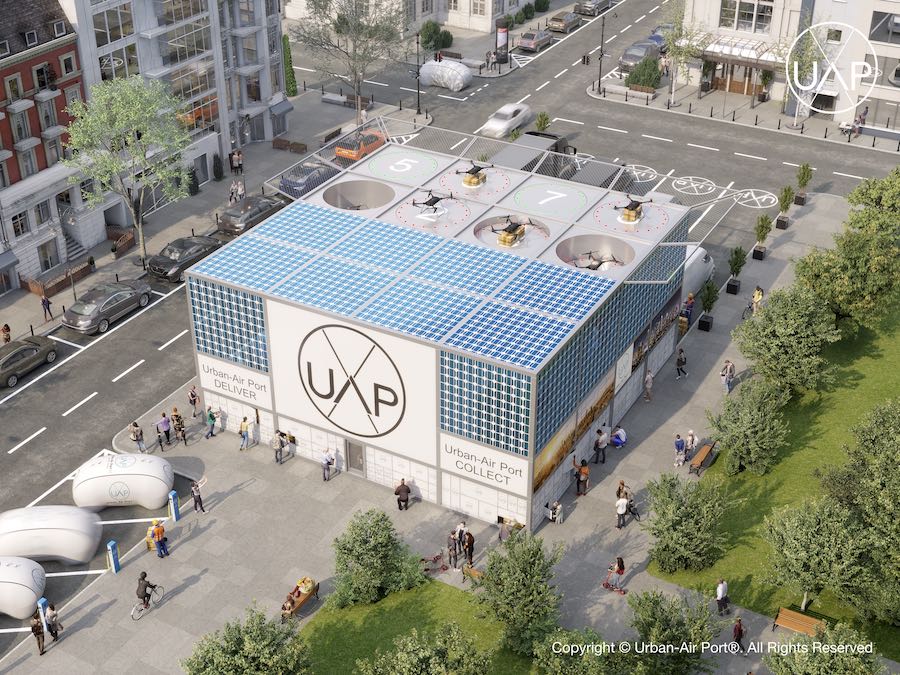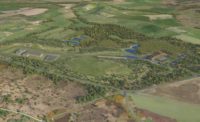While huge sums are being invested in developing air taxis, drones and other electric vertical take-off and landing craft (eVTOL), the necessary infrastructure has taken a back seat. But with backing from the U.K. government and South Korea's Hyundai Motor Group, plans by a British start-up for a new generation of mini urban "airports" are taking off.
Construction has just started on what is claimed to be the world's first operational eVTOL hub, in a parking lot in the city of Coventry. Three weeks of cargo drone flight demonstrations are planned for this April, says Andrea Wu, co-founder and chief design officer of the hub developer Urban-Air Port Ltd. (UAPL).
To save space, UAPL's hubs do away with separate airfields and enclose the whole facility within a compact steelwork structure with a 60% smaller footprint that traditional facilities. Coventry’s unit will be 46.5 meters in diameter with a central 17.5-m opening for craft access, says Wu. As a demonstration hub, it will include passenger, logistics and control spaces.
The developer is essentially offering modular kits with optional extras, depending on the facility's planned use and scale, says Wu. Over the last six months, "we've had numerous enquiries globally," she adds. The company hopes to provide 200 hubs around the world in the next five years.
UAPL was launched early last year when Hyundai's advanced air mobility unit invested $1 million, matched by a $1.6-million grant from the Future Flight Challenge of the governmental U.K. Research and Innovation (UKRI). UAPL had "the potential to revolutionize cities across the world, making them more connected, cleaner and accelerating our green economic recovery," noted Gary Cutts, the Future Flight Challenge director at the time.
Hyundai stepped up its investment in late January, acquiring a minority share through its newly created Supernal LLC division. As part of the deal, Supernal's global head of partnerships and business development, Adam Slepian, will join UAPL's board. And Supernal's Matthew Sattler is joining UAPL’s board of advisors.
The new alliance will "supercharge the rollout of sustainable, intermodal and scalable ground infrastructure that will unleash the future of advanced air mobility globally,” believes UAP's founder and executive chairman Ricky Sandhu, who is courting new investors.
For the South Koreans, "it is essential we not only develop electric air vehicles, but also help shape the broader advanced air mobility market from the ground up," notes Jaiwon Shin, Supernal's CEO and president of Hyundai's urban air mobility division. Hyundai launched Supernal in November to advance its "future mobility" strategy, which aims to start commercial flights in 2028.
The automaker is one of many companies investing in the fast growing eVTOL sector. UKRI forecasts the global market will be worth $74 billion, including infrastructure services, in 2035. The U.K. alone is expected to have 76,000 drones in operation by 2030. UAPL forecasts the global urban air mobility market to grow by 9% a year, reaching $12.7 billion by 2027.
However, while the main focus remains on craft development, ground infrastructure is a major hurdle for the sector, according to UAPL. Investment in fixed infrastructure last year was just 3% of that spent on craft development, the company estimates.






